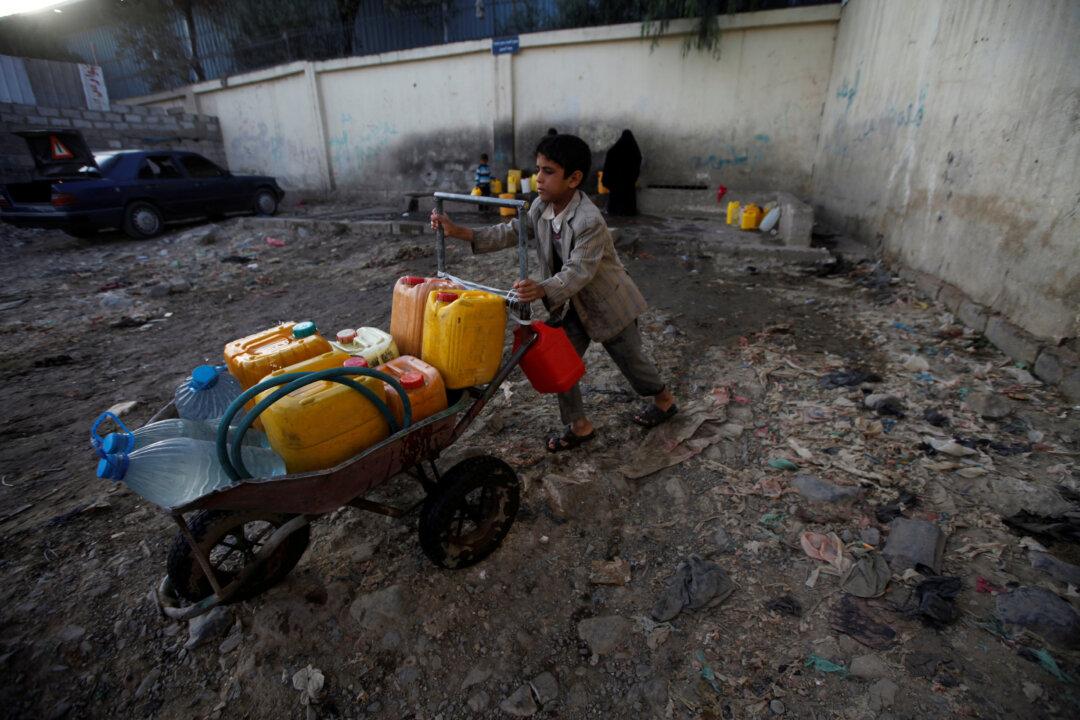GENEVA—The number of Yemenis on the brink of famine could rise to 12 million—or two in five of the population—from around 8.5 million in coming months due to escalating war and a deepening economic crisis, the United Nations food agency said on Oct. 15.
Yemen has been torn apart by more than three years of civil war between the internationally recognized government, backed by a Saudi-led military coalition and based in the south, and the Iran-aligned Houthi movement that controls the north, including the capital Sanaa. The nation of some 30 million is the Arabian peninsula’s poorest.





